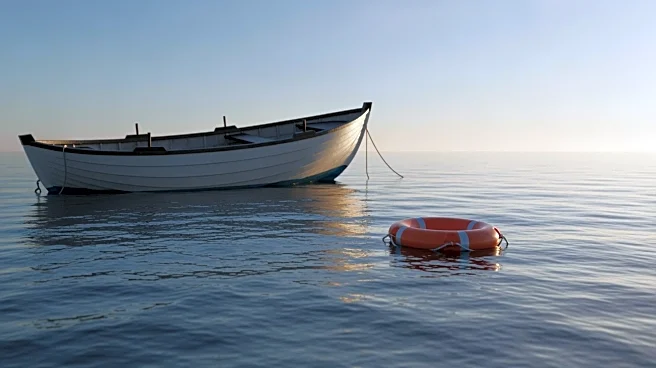What's Happening?
The death toll from a capsized boat carrying Rohingya migrants from Myanmar has increased to 26, following the recovery of additional bodies by rescuers in Thailand and Malaysia. The boat, which was carrying an estimated 70 people, sank near Tarutao island
in southern Thailand. Survivors have reported that the passengers were divided into smaller boats as they approached Malaysia. The incident has drawn attention to the ongoing plight of Rohingya refugees, who continue to undertake perilous journeys to escape persecution in Myanmar.
Why It's Important?
This tragic event highlights the severe risks faced by Rohingya refugees attempting to flee Myanmar. The increasing number of maritime incidents involving refugees underscores the urgent need for international intervention and support. The situation is exacerbated by deteriorating conditions in refugee camps and ongoing conflict in Myanmar, pushing more individuals to risk their lives at sea. The incident calls for enhanced search-and-rescue operations and improved asylum access to prevent further loss of life.
What's Next?
In response to the tragedy, international organizations may increase pressure on regional governments to bolster their search-and-rescue capabilities and provide safe asylum options for refugees. The incident may also prompt discussions on the broader refugee crisis in Southeast Asia, potentially leading to policy changes or increased humanitarian aid. Continued monitoring of the situation is expected as authorities work to identify victims and provide support to survivors.
Beyond the Headlines
The capsizing incident sheds light on the broader ethical and humanitarian challenges faced by Rohingya refugees. It raises questions about the adequacy of international refugee protection frameworks and the responsibilities of neighboring countries in providing safe passage and asylum. The ongoing crisis may also influence public opinion and policy regarding immigration and refugee support in the region.

















